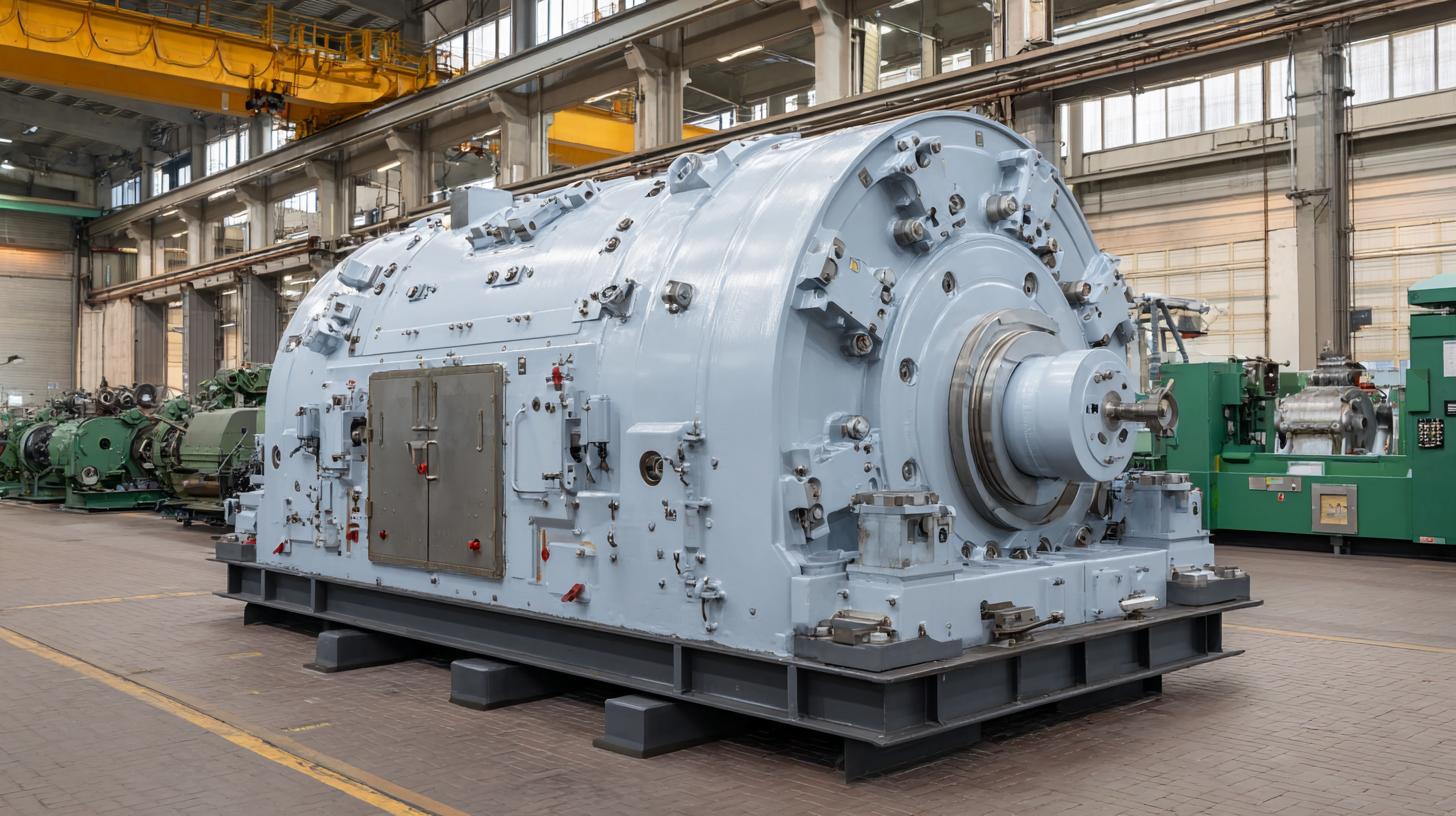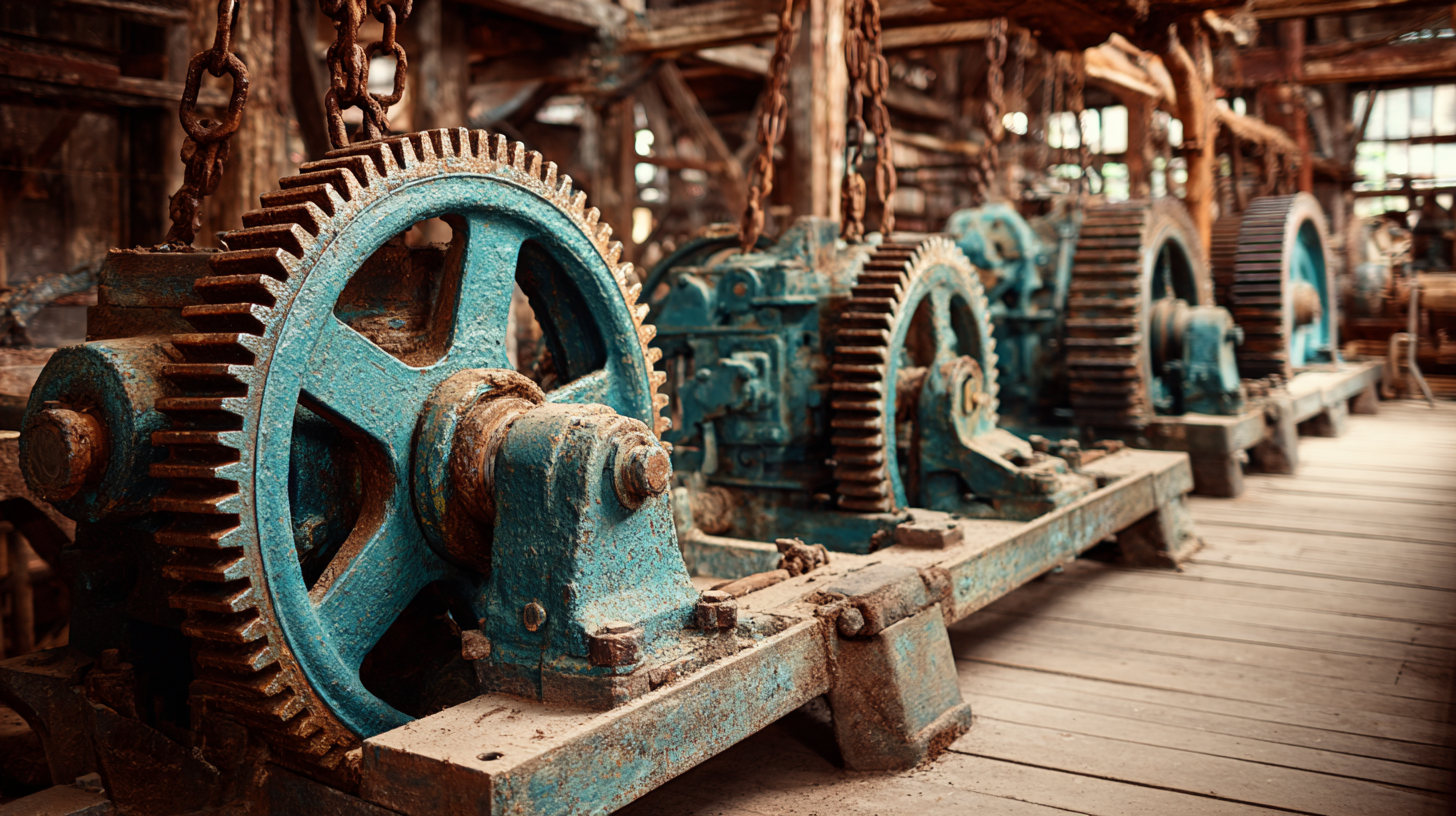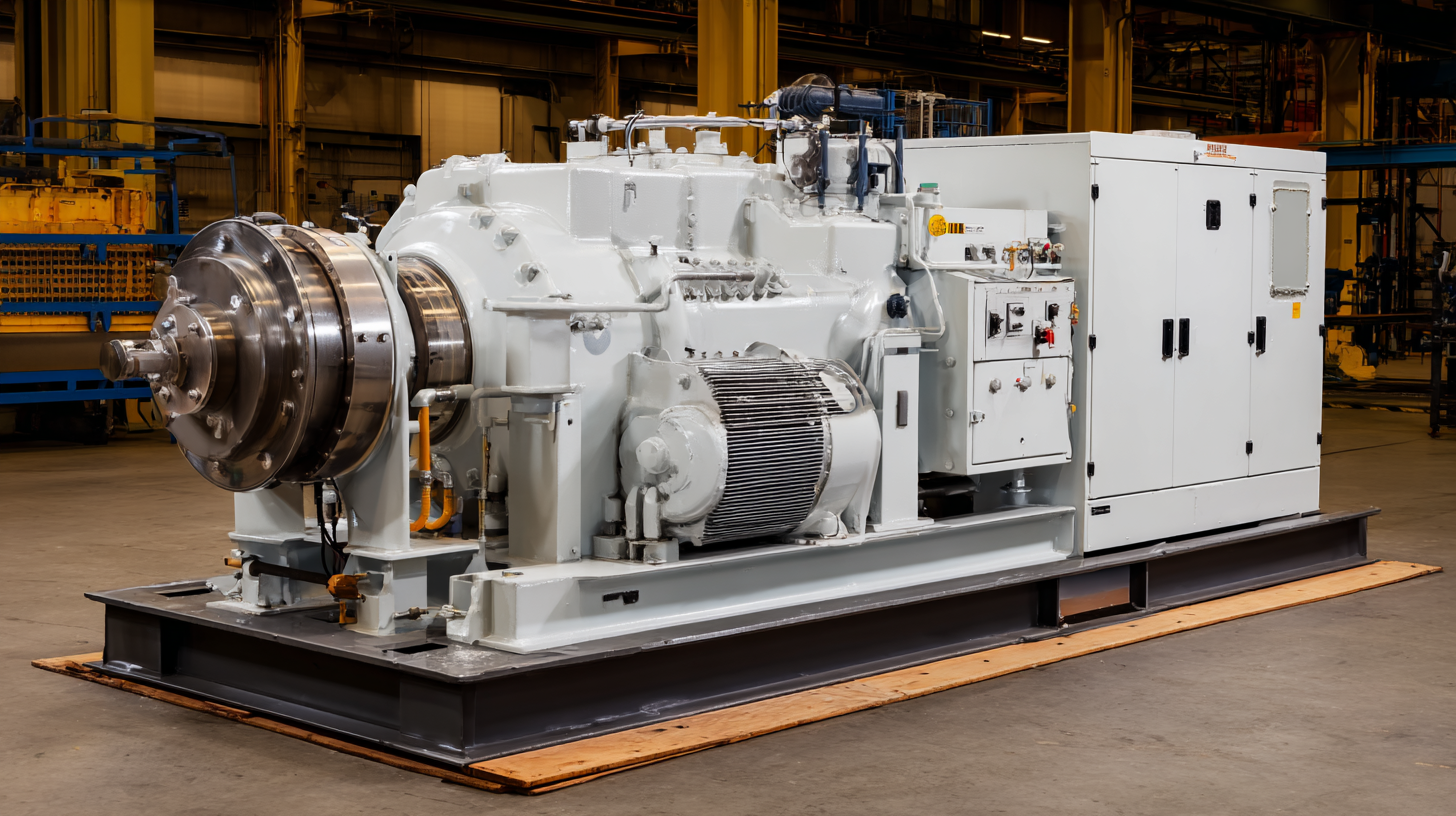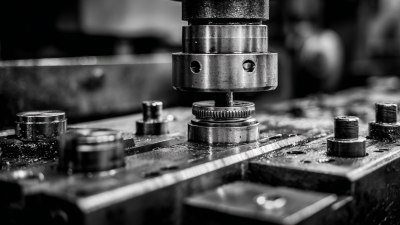5 Best Industrial Machine Equipment Innovations You Should Know
In the rapidly evolving world of manufacturing, the significance of industrial machine equipment cannot be overstated. According to a recent report by Research and Markets, the global industrial machinery market is expected to reach $660 billion by 2025, driven by advancements in automation and smart technology. These innovations not only enhance operational efficiency but also improve precision and sustainability within production processes.

As industries increasingly adopt cutting-edge solutions, staying informed about the latest advancements is crucial for professionals aiming to maintain a competitive edge. This blog will explore the five best innovations in industrial machine equipment that are reshaping the landscape of manufacturing, ensuring you are equipped with the knowledge necessary to navigate this dynamic sector effectively.
Revolutionary Automation Technologies Transforming Industrial Operations
The industrial sector is witnessing a profound transformation fueled by revolutionary automation technologies. With the rise of artificial intelligence, machine learning, and Internet of Things (IoT) applications, traditional operational methods are being challenged. These innovations not only enhance productivity but also significantly improve the quality and reliability of outputs. For instance, smart sensors and automated machinery enable real-time monitoring of production lines, allowing for swift adjustments that help minimize waste and downtime.
Additionally, collaborative robots, or cobots, are reshaping the workforce dynamics in industrial settings. These robots are designed to work alongside human operators, taking on repetitive and hazardous tasks while freeing workers to engage in more complex problem-solving activities. This symbiotic relationship not only boosts efficiency but also ensures a safer working environment. As industries continue to adopt such breakthrough technologies, the future looks promising for enhanced operational capabilities, leading to competitive advantages in the global marketplace.
5 Best Industrial Machine Equipment Innovations You Should Know
| Innovation | Description | Impact on Industry | Efficiency Improvement (%) |
|---|---|---|---|
| AI-Powered Predictive Maintenance | Utilizes AI to predict equipment failures before they occur. | Reduces downtime and maintenance costs. | 30% |
| Robotic Process Automation (RPA) | Automates repetitive tasks, freeing human workers for complex roles. | Increases productivity and reduces error rates. | 40% |
| 3D Printing Technology | Enables on-demand production of custom parts. | Reduces waste and shortens supply chains. | 25% |
| Industrial IoT (IIoT) | Connects industrial devices to the internet for data analysis. | Enhances operational visibility and decision-making. | 35% |
| Augmented Reality (AR) in Training | Provides immersive training experiences for workers. | Improves training efficiency and knowledge retention. | 50% |
Smart Sensors: Enhancing Efficiency and Safety in Machinery
In the rapidly evolving landscape of industrial machinery, smart sensors are at the forefront, enhancing both efficiency and safety. These innovative devices not only monitor operational conditions but also provide real-time data that can predict equipment failures, thus facilitating predictive maintenance. The integration of the Internet of Things (IoT) has transformed the way manufacturers approach machinery management, allowing for advancements such as wireless sensor networks that enhance communication and data collection capabilities across multiple systems.
Moreover, trends indicate a growing focus on miniaturization and advanced sensor functionalities, enabling devices to be more portable and energy-efficient. As the automotive industry embraces smart chassis control systems, sensors play a critical role in ensuring systems like electronic stability control and adaptive steering are optimized for safety and performance. The marriage of artificial intelligence with sensor technology signifies a major leap towards autonomous operational capabilities, which is expected to shape the future of smart manufacturing and industrial automation. As industries continue to adopt these technologies, the potential for increased productivity and improved safety standards becomes more promising than ever.
Robotics Advancements: The Future of Manufacturing and Workforce Integration
The landscape of manufacturing is rapidly evolving, thanks to advancements in robotics technology. As industries integrate
collaborative robots, or cobots, into their workflows, we witness a transformative shift in both
productivity and worker safety.
These innovative machines are designed to work alongside human operators, assisting them in various tasks and allowing for a
more dynamic and efficient work environment.

As these robotics advancements continue to develop, they promise a future where the gap between human labor and machine efficiency narrows. Industries incorporating smart robotics not only enhance their production capabilities but also redefine the workforce's role, positioning workers as highly skilled operators of sophisticated machines rather than mere laborers.
Tips: Embrace upskilling initiatives to prepare your workforce for these changes. Encouraging continuous learning and adaptability among staff is essential for a successful transition into this new era of manufacturing.
Sustainable Innovations: Eco-Friendly Equipment Reshaping Industries
In today's rapidly evolving industrial landscape, eco-friendly innovations are at the forefront, reshaping how industries operate. From renewable energy solutions to green manufacturing practices, sustainable equipment is becoming essential for companies aiming to minimize their environmental footprint. Innovations such as energy-efficient machinery and biodegradable materials are not only reducing waste but also setting new standards for operational efficiency and productivity.
Tip: Consider implementing energy audits in your facility to identify areas where energy consumption can be reduced. This can help in selecting the right eco-friendly equipment that aligns with your sustainability goals.
Moreover, the integration of smart technologies in industrial equipment aids in optimizing resource use. For instance, IoT-enabled machines can monitor energy usage in real-time, allowing companies to make informed decisions that enhance efficiency. By leveraging such technologies, industries can significantly lower their carbon footprint while maximizing output.
Tip: Look into partnerships with firms specializing in sustainable technologies to discover innovative solutions tailored to your specific industry needs. This collaboration can drive not only sustainability but also long-term profitability.
5 Best Industrial Machine Equipment Innovations You Should Know
AI-Powered Machinery: Boosting Productivity Through Intelligent Systems
In today's fast-paced industrial landscape, AI-powered machinery is revolutionizing operations by enhancing productivity through intelligent systems. These innovations leverage machine learning algorithms and advanced data analytics to optimize processes, reduce downtime, and improve overall efficiency. For instance, predictive maintenance tools equipped with AI can analyze machinery usage patterns and identify potential issues before they lead to costly breakdowns. This proactive approach not only saves time but also extends the lifespan of equipment, allowing manufacturers to allocate resources more effectively.

Moreover, AI-driven robotics are transforming assembly lines by adapting to changing production demands in real-time. These intelligent systems can learn from their environments and even collaborate with human workers, leading to increased flexibility and output. By utilizing AI, businesses can streamline workflows, minimize waste, and respond quickly to market trends, positioning themselves for continued success in an increasingly competitive environment. The integration of AI into industrial equipment is not just a trend; it represents a fundamental shift towards smarter, more responsive manufacturing solutions.
Related Posts
-

Uncovering the Advantages of Industrial Machine Equipment in Enhancing Global Supply Chain Efficiency
-

Exploring Innovative Examples of Industrial Supplies and Equipment for Modern Manufacturing
-

Top Strategies for Maximizing Efficiency with Machine Shop Tools and Equipment in Modern Manufacturing
-

The Ultimate Guide to Choosing the Right Industrial Machinery and Equipment for Your Business
-

Ultimate Guide to Selecting the Right Oil Field Machine for Your Operations
-

Essential Guide to Selecting the Right Industrial Pumps and Machines for Your Business
